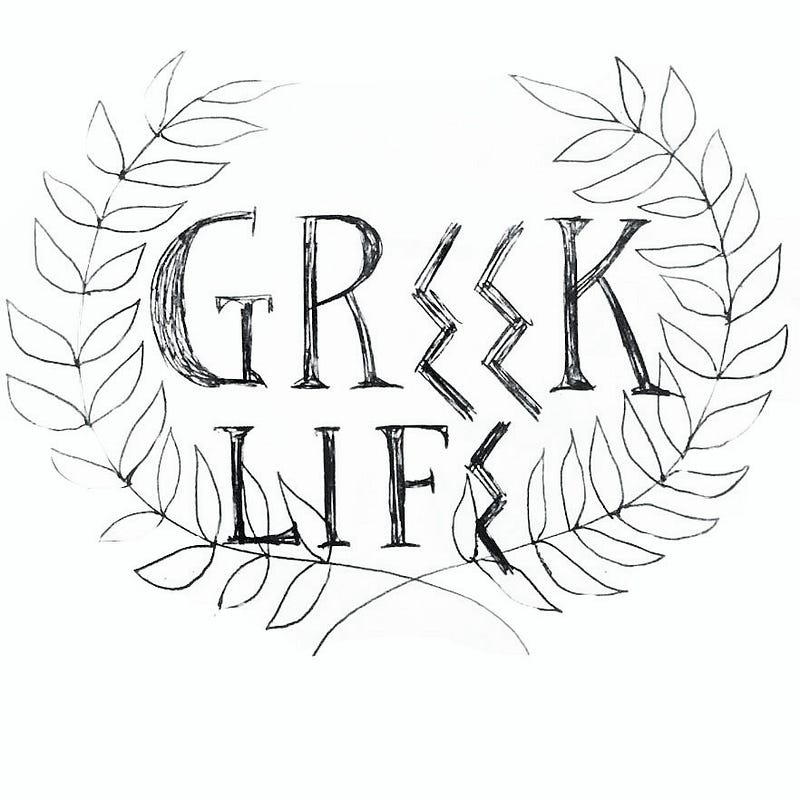
As representatives of the Greek sororities, we are thankful that conversations have sparked this past week about our role in Hamilton’s community. We want to take this opportunity to address some of the misconceptions currently circulating among the student body. There are only four active Greek sororities on campus: Alpha Theta Chi, Gamma Xi, Kappa Sigma Alpha, and Phi Beta Chi. As part of the Greek community, we recognize that there are issues with Greek life on Hamilton’s campus, and we are open to suggestions on how to fix them. However, we want to dispel the unfounded claims published in last week’s
Spectator
article, “A cyclical process of degradation — at Hamilton, the ends don’t justify the means when it comes to sororities” that specifically targeted sororities and their role on this campus. The members of our sororities deeply value the supportive community that Greek life provides for us and the network of female support created by current members and generations of alumni. We, as the Greek sororities, hope to be transparent with the Hamilton community and to unpack the preconceived notions and rumors surrounding our societies.
We recognize that there are issues inherent in the Greek rush process, which groups like the Inter-Society Council and the Blue Ribbon Committee are working to address. Although the recruitment process is different between Greek life, clubs, and sports teams, all of these groups are created on the basis of similar interests and collective goals. It is human nature to seek group status and acceptance, which carries across groups on campus including sports teams, acapella groups, and club e-boards — each of which has a certain degree of exclusivity. Although the rush process is perceived as long and tedious, it is designed to form genuine and strong relationships among the individuals participating. It is an opportunity for older members to meet and socialize with underclassmen, and it allows first-years to befriend other first-years, enhancing the Hamilton community as a whole.
Last week’s
Spectator
article also mentioned the exclusivity of Hamilton’s sorority system. We would like to reiterate that events often deemed as exclusive through public opinion have limited space and need mitigation of liability. We are trained by the administration to host private events and are encouraged to utilize lists to contain the population and subsequent liabilities, like fire hazard occupancy rates, instances of sexual assault, and binge drinking. Most members of the sororities on campus are trained by Title IX, SMART, SAVES Peer Advocates, and/or in Bystander Intervention as well as TIPS and Social Host Training, which allows members to safely intervene in the case of an emergency. However, it is much easier to notice abnormal situations in smaller group settings.
It is important to recognize that the current conversations about Greek life on Hamilton’s campus are laced with sexist and misogynistic viewpoints. While sororities are being scrutinized, other Greek societies protected by their longstanding legacy status have yet to be mentioned in the current dialogue, a clear oversight by those criticizing the Greek process. Contrary to the claims made in last week’s
Spectator
article, the local status of Hamilton sororities allows us to avoid sexist standards ingrained in the national rules for Greek life. Students’ tendency to dissect the inner workings of sorority dynamics while neglecting to examine Greek Life as a whole promotes a male dominated culture and hierarchy at Hamilton. We hope that the Hamilton community, which values diversity and social consciousness, can recognize and critique this dichotomy that reinforces gender stereotypes. We ask that if you criticize sororities, you also consider Greek life as a whole. We hold Hamilton’s community to the standard of pursuing the truth and not participating in spreading rumors that can hurt people and defame their character.
Often times, sororities and other Greek organizations are viewed as their own entities. However, as you can see through our collaboration on this opinion piece, as the four active sororities on Hamilton’s campus we have come together as a collective to present our side of the story. We form a united presence and hope to extend this to the wider Hamilton community by bringing attention to our philanthropic efforts on and off the Hill. One initiative we have is that each member of the Greek community is required to complete a minimum of two hours of community service per semester. However, most members go above and beyond this minimum. For example, both Alpha Theta Chi and Phi Beta Chi work closely with the Thea Bowman Center in Utica. Gamma Xi volunteers with the Utica Library, the Players of Utica, Brookdale Clinton Nursing Home, and the Lutheran Home. Kappa Sigma Alpha volunteers biweekly with the Clinton Pet Rescue and Animal Shelter. This coming December, all sororities are planning a unified fundraiser with Thea Bowman. Other participation in our community has included self-defense classes, creation of SMART plans of action, bringing speakers to campus, and participating in the annual Heart Walk. We plan to continue and expand these initiatives.
We truly love the current members in our own sororities, women across societies, and Hamilton’s community as a whole. Our organizations are based upon trust, respect, unity, intellectual growth, and character. These are concepts we continually promote within our societies.
To extend these ideals further into the Hamilton community, we will work to be as transparent as possible in the coming months as adjustments are made to Greek life.
Contributions to this piece were also made by Sarah Pickup ’19 (ΑΘΧ) and Caroline Fjermedal ’20 (ΚΣΑ).

















